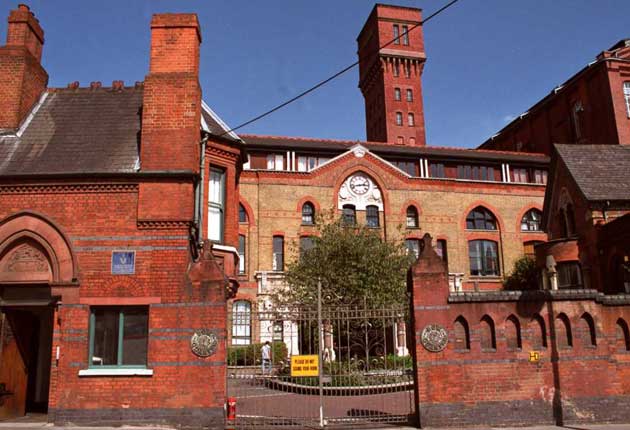Are gated estates dividing our society?
Gated estates are causing an uproar. They're safe – but at what cost to society? Graham Norwood reports

Your support helps us to tell the story
From reproductive rights to climate change to Big Tech, The Independent is on the ground when the story is developing. Whether it's investigating the financials of Elon Musk's pro-Trump PAC or producing our latest documentary, 'The A Word', which shines a light on the American women fighting for reproductive rights, we know how important it is to parse out the facts from the messaging.
At such a critical moment in US history, we need reporters on the ground. Your donation allows us to keep sending journalists to speak to both sides of the story.
The Independent is trusted by Americans across the entire political spectrum. And unlike many other quality news outlets, we choose not to lock Americans out of our reporting and analysis with paywalls. We believe quality journalism should be available to everyone, paid for by those who can afford it.
Your support makes all the difference.There are more than 1,000 gated estates in Britain, each creating a special community... or shutting the rest of us out, depending on your point of view.
In some countries with high crime, gated estates proliferate: there are 50 in Bulgaria's capital, Sofia, and over 400 in Johannesburg, South Africa.
But in Britain, where crime levels remain low – despite perceptions to the contrary – 72 per cent of gated-community residents still cited "greater security" as the main reason for choosing their home, according to the Royal Institution of Chartered Surveyors; "good resale value" and "peace and quiet" were the next most popular. Six per cent admitted buying into a gated estate would guarantee the neighbours were "people like us".
That "people like us" attitude is why the concept of gated estates divides the property industry more than almost any other type of housing.
A survey in London by Glasgow and Sheffield Hallam universities shows the communities inside and outside the gates to be very different. Some 73 per cent of insiders are economically active compared to 57 per cent outside; insiders are mostly higher-earning and better educated. (The University of Westminster argues the estates bring wealthier home owners into poorer areas of the capital, which would not happen if the gates were not put up.)
Michael Anderton, an independent financial adviser who lives on a gated estate in Kent, thinks the critics are misguided. "Properties on this estate started at £190,000 new, or even less on a resale, so it's not a rich person's ghetto. Many of the properties here are rented, so there's even more diversity. We fund additional security but that costs about £450 a year per home – hardly a fortune," he says.
Estate agents say a house inside a gate would be about 25 per cent dearer than an identical one outside. One reason is high security, but there is also minimal traffic, a high level of privacy and a feeling of luxury. Simon Barry of Knight Frank adds: "It's especially important for those who travel a lot and therefore seek a 'lock up and leave' property, as well as somewhere they can park the car securely and feel safe. This is key for single women and the elderly."
Opponents remain unconvinced. Sir Ian Blair, former commissioner of the Metropolitan Police, accused them of being socially divisive, and said they delayed emergency services as police or ambulance officers waited for security guards to open gates.
"What happens if there's a robbery or assault? Do police not go in because private security guards are already on the scene? Who's really in charge? Such behaviour makes society more fragmented than it already is," says Phil Spencer, who presents Channel 4's Location, Location, Location. He made waves this year when he wrote: "The bottom line is that they separate rich from poor. Gated communities are a desperate, if understandable, response to decreasing trust and investment in our society – and they will end up doing even more damage. Storm the barricades now."
Planners may do the job for him. In 2008, local authorities as far apart as Plymouth, Hampshire, London and Scotland rejected applications for gated estates. Of course, this is likely to increase the value of the existing ones. Perhaps a case of shutting the gate after the horse has bolted?
Join our commenting forum
Join thought-provoking conversations, follow other Independent readers and see their replies
Comments